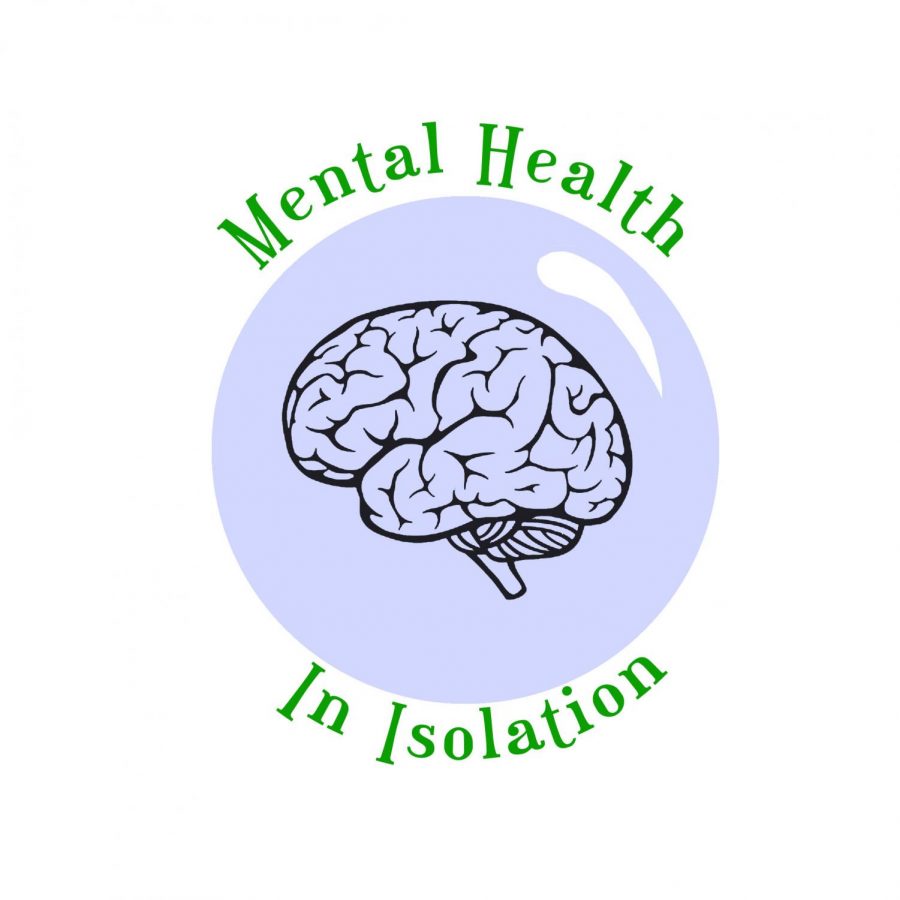Mental health in isolation
What anorexia nervosa really means and how COVID-19 impacts those with the disorder
More stories from Grace Olson
Photo by Bethany Mennecke
According to the National Association of Anorexia Nervosa and Associated Disorders, eating disorders are among the deadliest mental illnesses, second to opioid overdose.
One of the most recognized eating disorders is anorexia nervosa. Anorexia is an eating disorder characterized by an unhealthy low body weight, an intense fear of gaining weight and a distorted perception of weight, according to Mayo Clinic.
People with this disorder have a high value on controlling their weight and shape, by using extreme efforts. They often restrict the amount of food they eat, control calorie intake or try to lose weight by exercising excessively.
While people with anorexia focus on their weight, it isn’t really about food, according to Mayo Clinic. It’s an extreme way of coping with emotional problems, and often the thinness of the person is equated to their self-worth.
There are multiple of both physical and emotional/behavioral symptoms of anorexia. Some physical symptoms include:
- Extreme weight loss
- Abnormal blood counts
- Fatigue
- Insomnia
- Dizziness or fainting
- Thin hair that breaks or falls out
- Bluish discoloration of the fingers
- Absence of menstruation
- Constipation or abdominal pain
- Dry or yellowish skin
- Irregular heart rhythms
Food provides the nutrition the human body needs to survive. So when someone takes away these nutrients, their body will react and start to deteriorate. But not only will one’s physical health decrease so will their emotional health.
Some emotional and behavioral symptoms of anorexia are frequently skipping meals, denial of hunger, eating only a few “safe” foods, adopting rigid meals or eating rituals, not wanting to eat in public, lack of emotions, irritability and more.
Psychiatry Advisor is a website that offers psychiatric health care professionals a comprehensive knowledge base of practical psychiatry information to help assist in making the right decisions for their patients.
They did a study of 1000 participants, who have eating disorders, from the United States and the Netherlands, ages 16 to over 60 years old. The study took place between April 8, 2020 to May 15, 2020. During this time the countries were at different stages of the pandemic.
People from both countries had similar concerns. Most participants were worried their eating disorders would worsen because of a lack of structure caused by the pandemic.
They also were concerned their disorder would worsen by being in a triggering environment and a lack of social support and the lack of access to food that was consistent with their regular meal plan.
Nearly half of the participants were untreated, which is common with eating disorders. Those with the disorder place their desire to be thin over their concerns of their health.
Like the disorders discussed in the past two installments, many people don’t want to seek help because of embarrassment, they don’t think they need help or they are uncomfortable seeing a therapist through a computer screen rather than in person.
I really wanted to highlight anorexia this week because in so much of mainstream media being super thin is what’s popular and regarded as “healthy.”
I remember growing up and only seeing skinny, tall models in T.V. shows, magazines and movies. It’s really discouraging to only see one body type, not to mention how little minority representation is shown in mainstream media.
A disorder, any disorder, should not be glorified in any way. An eating disorder like anorexia destroys the body not only physically but completely distorts one’s view of weight and body image.
Although there is no guaranteed way to prevent anorexia, there are ways to get help. The National Eating Disorders Association provides a chat option, a help line at (800) 931-2237 and a text option at the same number.
For crisis situations one can text “NEDA” to 741741 to be connected with a trained volunteer.
Olson can be reached at [email protected].











